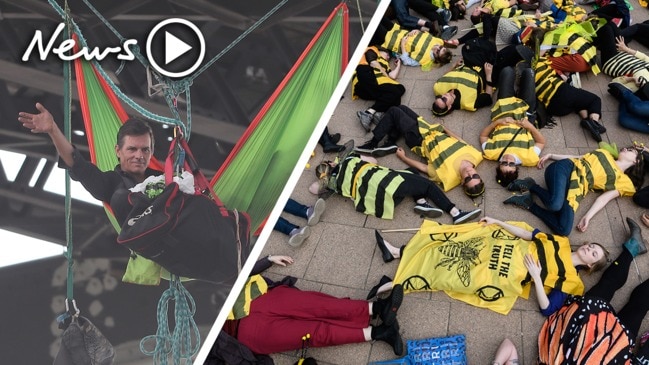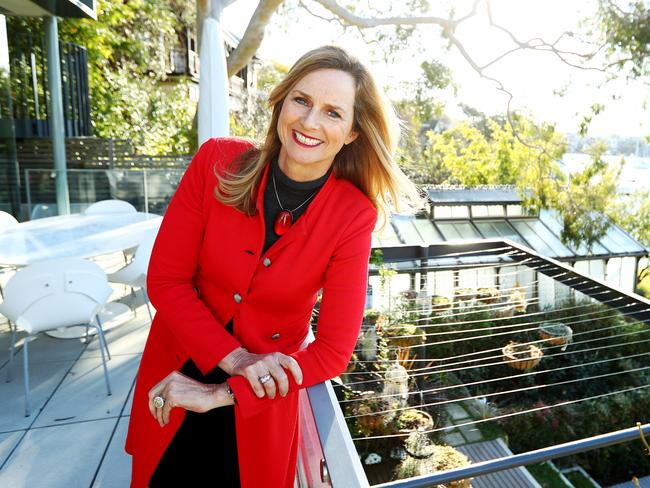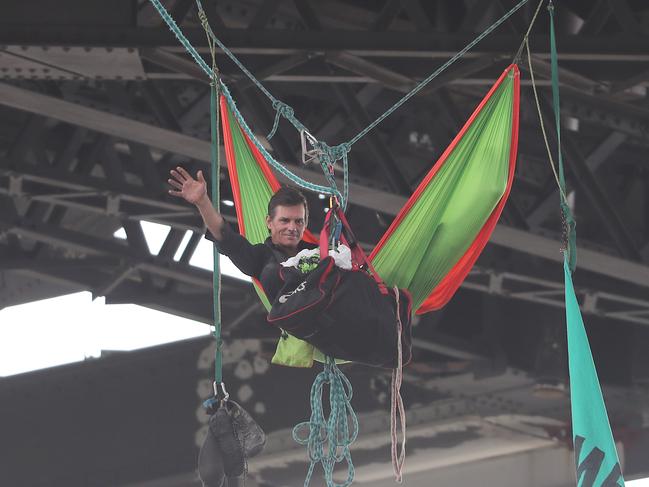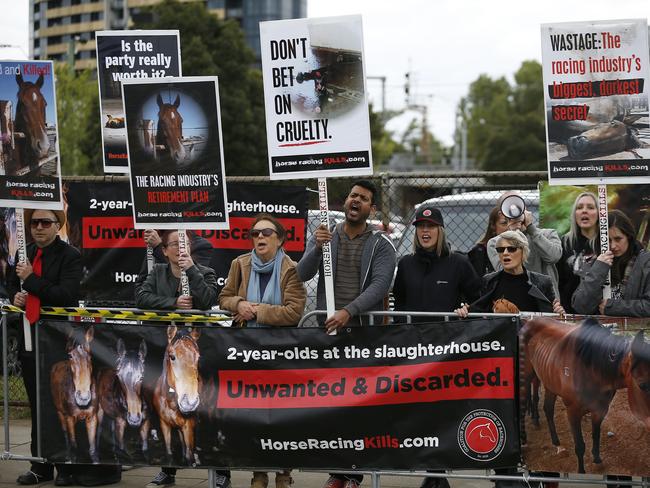Protesters could be sabotaging their future careers with extreme, public activism
Protesters risk sabotaging their career prospects as employers shy away from jobseekers who take activism too far.

Careers
Don't miss out on the headlines from Careers. Followed categories will be added to My News.
Protesters risk sabotaging their career prospects as employers shy away from jobseekers who take activism too far.
Business owners, career counsellors - and even protesters themselves - have warned of potential career consequences for participating in political demonstrations.
Whether it is attending a protest or publicly tweeting at a politician, political activities can have a major effect on a person’s employability if their behaviour raises red flags.
Big Red Group and Red Balloon co-founder Naomi Simson said she supported people standing up for their beliefs but was put off jobseekers who showed a lack of self awareness.
Ms Simson said: “The number one skill they say we need in the future is emotional intelligence and that comes from your ability to perceive the impact you have on others or walk in another’s shoes.”
“Lying in the middle of the street being a protester, that might show they see it as ‘my way or the highway’.

“What about the parents who can’t get their kids to school or the small business that fights every day to have customers?
“To be a leader is to bring people with you in a way that inspires other people to greatness, not causes financial harm for others.
“We are looking for people with emotional intelligence who are able to be leaders of their ideas and influence others.”
MORE NEWS
Extinction Rebellion protester Eric Herbert fined $220
Banking Royal Commission sparks demand for risk professionals
Graduate career counselling organisation TwoPointZero’s chief executive Steve Shepherd said past behaviour was an indicator of future behaviour so he would take note of the way a jobseeker acted during protests.
“Having an informed debate is perhaps better than trying to impose your views through violence or stubbornness,” he said.
“I’m not saying that person is going to sit down in my office if they don’t agree with me and refuse to move, but (I ask myself) ‘how do they engage with somebody if they don’t necessarily agree?’.
“If you believe strongly in something, I don’t believe you should sit and be a wallflower but some people will be watching you on TV and think ‘that’s not who I want’.”

For other employers it was a question of branding.
Australian Institute of Management WA chief executive Professor Gary Martin said photos or videos of protests had the potential to go viral.
“If an employer believes that participation in a protest undermines their capacity to carry out their role or damages the brand of their employer in any way, expect bosses to be asking some hard questions back in the workplace,” he said.
“Being caught up in anything but a peaceful protest can be a career derailer at least, and a career disaster at worst.
“As a CEO, I’d certainly think twice before hiring anyone who had in the course of protesting endangered others’ lives or incited violence.”

Extinction Rebellion activist Lucy Ridsdale, 40, said the climate group’s protesters were warned of what they risked when they joined the cause.
“I think XR always wants to be fully honest and disclose fully the potential consequences of their involvement,” she said.
“People need to be informed and have their eyes open so they can choose that freely.”
The White Gum Valley, Western Australia resident and freelance editor lost one of her clients after posting about her involvement on personal, non-public social media accounts.
She was informed of the company’s social media policy and asked to tone down her message but decided the job was not worth it.
“It was clear to me I was not going to stop sharing about my role with Extinction Rebellion because it’s a matter of conscience for me and I believe it’s the issue of our times,” she said.
“I don’t begrudge them, they are a small business and passionate about the work they do.”

This was the first time Ms Ridsdale’s activism, which began in the 1990s, had affected her employment and she believed this was largely the result of social media making everything more public.
“Maybe I am naive in thinking my private life and what I post on social media stays in that domain, but that’s not really the world we live in,” she said.
Maurice Blackburn Queensland head of employment law Giri Sivaraman said there were legal protections against discrimination based on political activity but it was difficult to define this.
“I expect judges and tribunals will take a more narrow approach and say it needs to be linked to a political party (to count),” he said.
“Unless you were protesting and saying ‘I do it on behalf of a political party’ then you are fired and the employer says ‘it’s because you are protesting on behalf of x political party’, it is unclear.
“We have an environment where employers are really seeking to control employees in their private and public lives like never before.”

The stigma around activism may be starting to shift in some organisations, however, as employers themselves increasingly take a stance on social issues.
Brisbane Junior Chamber of Commerce president Nathan Schokker said younger business owners in particular were looking for ways to incorporate social responsibility into their business.
Jobseekers involved in activism are given an edge rather than a mark against their name in the eyes of business owner Kegan Daly.
Mr Daly, 36, from Thornbury in Victoria, juggles running his natural building and sustainable landscape design business Of The Earth with organising Extinction Rebellion events.
He joined the movement four months ago and was arrested during protests in Melbourne earlier this month.

Unlike some other employers, he favoured workers with a background in civil disobedience.
“I am looking for people who have a social conscience and can think outside of themselves and in the best interest of the group as a whole,” he said.
“Being involved in social movement demonstrates that their ethical framework includes how their actions impact others and that’s important when working as a group in the workplace.
“We have seen a shift in focus in our trade and higher education institutions toward educating students around sustainability issues … so the career prospects of the future will be heavily weighted towards people who have a social conscience and understand ecological principles and act in the greater good in the long term rather than short-term individual interests.”
Mr Daly, trained in straw bale construction, horticulture and permaculture, said he had employed Extinction Rebellion protesters in the past and that he would offer paid leave to workers if they were helping to organise protests during usual work hours.
“I would give them leave to be involved with XR protests because taking collective action to stop the ecological crisis is why my business is successful,” he said.
“There’s economic and ethical demand for societies to take sustainability seriously.”
READ MORE EMPLOYMENT NEWS IN THE CAREERS SECTION OF SATURDAY’S THE COURIER-MAIL, THE ADVERTISER, THE HERALD SUN AND THE DAILY TELEGRAPH.
Originally published as Protesters could be sabotaging their future careers with extreme, public activism
